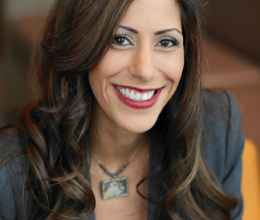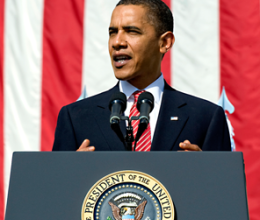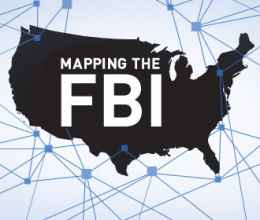
In February 2010, Lawrence Ho sought to return home to the United States after attending a conference in Canada. At the border crossing at Rainbow Bridge in New York, U.S. Customs and Border Protection (CBP) officers asked Mr. Ho, an American Muslim convert, "When did you become a Muslim?", "Which mosques do you attend?" and "How often do you attend the mosque?"
Last August, Hassan Shibly, a law student at the University at Buffalo Law School, sought to re-enter the United States at JFK airport with his wife and 7-month-old son after a trip abroad to visit family and perform a religious pilgrimage. Before they would let him come home, CBP officers asked him "Do you visit any Islamist extremist websites?"; "Are you part of any Islamic tribes?"; "Have you ever been to a madrassah or studied Islam full-time?"; "Do you attend a particular mosque?" "How many gods or prophets do you believe in?"
These stories, of ACLU clients, are not isolated tales. Over the past several years, at ports, land border crossings, and international airports across the country, U.S. citizens and lawful residents who are Muslim or who are perceived to be Muslim have been targeted by CBP officers for questioning about deeply personal beliefs, associations and religious practices protected by the First Amendment.
In December 2010, the ACLU and Muslim Advocates called for an investigation into this practice, and into the troubling experiences of five U.S. citizens, including Mr. Ho and Mr. Shibly, whom CBP officers subjected to invasive questioning. And last week, in response, we received a letter from the Department of Homeland Security’s Office for Civil Rights and Civil Liberties (CRCL) stating that it is opening an investigation into the problem and our clients’ complaints.
CRCL’s investigation is an important step in the right direction. Questioning individuals about their protected religious and political beliefs, associations, and religious practices (like charitable giving) may infringe upon rights guaranteed by the Constitution and federal law — rights that U.S. citizens do not surrender at the border.
CRCL’s investigation should be thorough and should answer the questions we raised in our December 2010 letter: Our clients — and all Americans — deserve a clarification of CBP policy on questioning about constitutionally protected religious and political beliefs and activities. They deserve to know how information they provide is handled, and whether it is shared with other government agencies. Our clients also deserve a clear statement that their civil rights and civil liberties were violated when they were questioned in this invasive manner without reasonable suspicion that they had done anything wrong.
A fair investigation should lead to a simple and clear message: CBP officers should not question U.S. citizens or legal residents about their constitutionally protected beliefs, associations, or activities without a reasonable suspicion based on credible evidence that the individual has engaged in criminal activity, and without a connection between such questions and the suspected activity. We’re hopeful that CRCL will reach the right result.
Think your rights were violated while traveling? Tell us your story.
(Originally posted on the Blog of Rights.)




